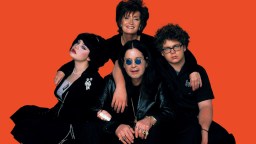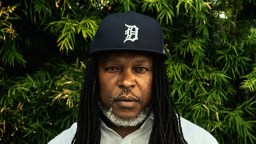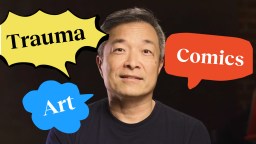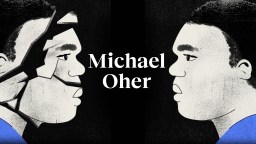It can be overwhelming to navigate the pains of life, but the iconic self-help author believes you can find yourself by answering just four questions
Pain is an inevitable part of life. But perhaps could suffering be optional if we’re empowered with the right tools.
“The cause of all suffering is what we’re thinking and believing,” says Byron Katie, author, public speaker and creator of an innovative practice called The Work. “The Work is a way to identify and question the thoughts that cause all the suffering in the world, all the suffering in your life.”
This unique practice invites us into deep self-inquiry by applying four simple questions to each of our experiences:
- Is it true?
- Can you absolutely know that it’s true?
- How do you react when you believe that thought?
- Who would you be without the thought?
The questions ask us to reframe our perspectives by challenging the unconscious thoughts we create and believe about our experiences, ourselves, and others. The Work is the act of engaging with these questions and allowing the answers to untangle us from ego and the stories it spins (which often carry untruths), and reveal deeper truths.
The answers are within each of us, says Katie, 82. And we can hear them if we slow down and give them room to emerge.
Before The Work found Katie, her life was ordinary: high school, college, a marriage, three children, a divorce, another marriage.
But suddenly, a deep and relentless depression snatched her out of nowhere. It sank her into 10 years of hopelessness, self-loathing, guilt, shame, agoraphobia, and an overwhelming sense that she wanted to die. “It was a horror. It was a prison with no way out,” she recalls.
Eventually, her doctor recommended that she stay in a halfway house for mental health recovery. There, she lived in an attic room, away from other residents who were frightened of her depressive mood swings. “My self-esteem was so low I didn’t believe I even deserved a bed to sleep in,” she says.
One day as she slept on the floor, a cockroach ran over her foot and delivered an epiphany in the liminal moment before she was fully awake. “I opened my eyes, and before the ego could intervene in that space, I saw how my entire world was created. Ego naming things I was seeing. Light, window, ceiling walls. Naming the unnameable.”
This revelation came through the neutral identification of things: The window was simply the window – not a representation of what windows were supposed to do for her, or how this one failed or succeeded at letting light in.
It was with this openness that she saw herself in the mirror with new eyes. “I looked into the depth of those eyes and it was as though I met myself. Love.” Not a failure, not an unworthy person, or a disappointment. Just herself – a woman with a husband, three children, and a home. It was liberating.
Her life changed along with her perspective, and her family was stunned by her evolution. Particularly after she returned home and quickly followed her urge to walk out into the desert. When her husband asked where she was going, she lit up. “I would just think, ‘That is one of the most amazing questions I’ve ever heard. The excitement of the, ‘Don’t know, I have no idea.’ I loved it.”
Empowered by this new ability to reframe her perspective, her hunger to understand and connect more with the world and herself led her to spend three years alone in the desert. This is where The Work found her.
Katie went on to write four self-help books, and she found passion in helping others to become neutral observers, remove the rigidity of ego and its stories, and instead, welcome a curiosity that delivers unexpected answers.
So, what happens if we strip away our limiting thoughts? Can we remove our suffering? According to Katie, the answer is yes.
“To anyone that has the courage to answer the questions, life is a gift. And anyone can do this work if their mind’s open to it.”
We interviewed Byron Katie for Perception Box Stories Untangled, a Big Think interview series created in partnership with Unlikely Collaborators. As a creative non-profit organization, they’re on a mission to help people challenge their perceptions and expand their thinking. Often that growth can start with just a single unlikely question that makes you rethink your convictions and adjust your vantage point. Watch Byron Katie’s full interview above, and visit Perception Box to see more in this series.
BYRON KATIE: So the work is a way to identify and question the thoughts that cause all the suffering in the world, all the suffering in your life. I spent three years when the work found me just alone in the desert to just get away from everyone and just be in this hunger to understand.
And there is this small little grocery store, and I walk in, and near the produce, over by the apples, it was this woman. She had these two large shopping bags, one in each hand, and then I lost all reference, which happened quite frequently for a while.
I said, "Would you hold me please?" And she put these bags down immediately and she wrapped her arms around me, and she started rocking me and sang me a lullaby.
And that's a friendly universe. And that's how I experience every human being, every cat, dog, and tree. It's who we are without our story.
I think people would describe me as ordinary, and there's nothing about me that would stand out. So I had a very usual life: high school, a couple of years of college, married, then three children, and then divorced, and then married, and then a depression hit.
It was so deep, so dark, so non-stop. I spent years, more than a decade, of an agoraphobic experience terrified of leaving my home. Often I couldn't leave my bedroom.
Life was so painful. For my children, I was so full of guilt and shame that they would see me that way. It was a horror. It was a prison with no way out.
Then one day, my husband brought me to this halfway house recommended by this doctor. I was introduced to three women, and they said I frightened them to the point that they didn't want me in the house.
But they said there is an attic, and it would be better if I stayed there. And I was just a yes to everything. I was in the surrendered state.
My self-esteem was so low I didn't believe I even deserved a bed to sleep in. One day, as I lay sleeping on the floor, a cockroach ran over my foot and I opened my eyes, and before the ego could intervene in that space, I saw how my entire world was created.
Ego naming things I was seeing: light, window, ceiling, walls—naming the unnameable. Prior to that, there was no identification. There was no I. There was no world.
I was seeing this body as it. It stood up. It walked and just out the door and faced a mirror and looked into the depth of those eyes, and it was as though I met myself. Love happened.
I saw that when I believed my thoughts, I suffered, and when I didn't believe them, I didn't suffer. My husband and children came to get me, and the shift they experienced in me, it was unrecognizable.
I didn't know I had my family until I was being identified. I'm a woman. I have a husband. I have three children. I have a home.
I'd start to walk out the door, this agoraphobic, and my husband would say something like, "Where do you think you're going, Kate?" and I would just think that is one of the most amazing questions I've ever heard.
Where the hell do I think I'm going? The excitement of the don't know. I have no idea. In the desert, the wind can blow hard for several days, and I loved it.
The adventure of meeting the world was just falling in love with everyone and everything. People would say, you know, there's this crazy woman that talks about making friends with the wind, but other people would call and say, "Can you help me?"
Obviously their minds were open. I'd say, "Yes." I would just listen to them talk, and they would tell me their problems.
Like, "My husband left me," or "There's something wrong with me," or "I'll never find work," or "I've got cancer, I'm dying." I ask four questions.
The first one is, "Is it true?" and then the next question is, "Can you absolutely know it's true?" and then, "How do you react when you believe the thought?" and then that fourth question, "Who are you without the thought?"
Suffering, I've come to see, is optional. But to anyone that has the courage to answer the questions, life is a gift, and anyone can do this work if their mind's open to it.






